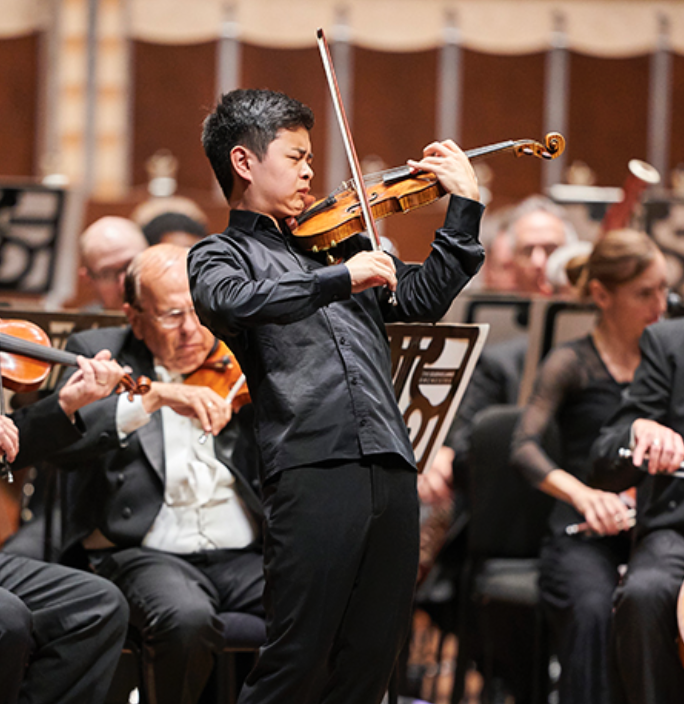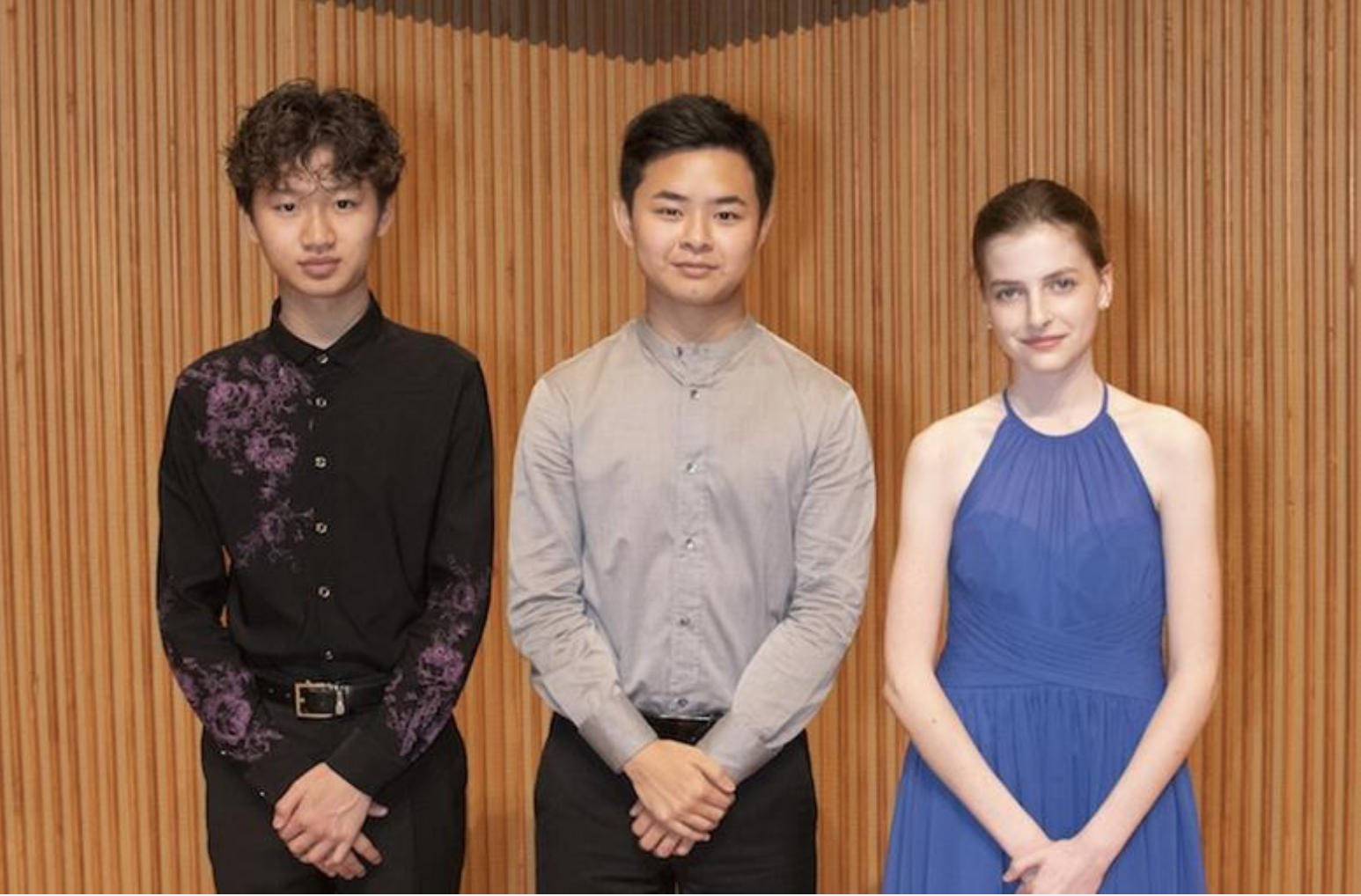by Mike Telin

Commenting in a press release on Chen’s performance of Prokofiev’s Concerto No. 2 in g with The Cleveland Orchestra under the direction of Gemma New, Director and Jury Chair Gregory Fulkerson said, “What you heard from Eric was profound instrumental control and rhythmic understanding of the piece.” Fulkerson particularly praised Chen for his delivery of a duet with the Orchestra’s bass section late in the piece. “It was a true moment of greatness.”
What were the young violinist’s thoughts when he realized he had won? “I was shocked,” he said the following morning during an interview in the lobby of The Hotel at Oberlin. “I didn’t come here expecting to make it this far. But getting to play with The Cleveland Orchestra, and hearing the others play, by the end of the day it didn’t feel like a competition, it just felt like we were all there to perform. And the awards ceremony was really fun.”
After the three finalists were announced following the Recital Round on Wednesday evening, the violinists met with Gemma New on Thursday to talk through their concertos. “I was still very nervous at the rehearsal — I’ve only had two performances with an orchestra before, so jumping straight to Cleveland was a huge leap for me — it initially felt like I was a little bit out of my league because of how prestigious and experienced they are. But everyone was so supportive. Even backstage they would talk to me, and that was really comforting.”
Chen said he enjoyed the experience of working with Gemma New, who was making her Cleveland Orchestra debut at the concert. “She was fun and very efficient in rehearsal. I think we only had about forty minutes, so we had to get through the concerto, then go back and hit spots that weren’t totally settled. But by the concert everything felt super ready. There were a lot of little details that we talked about, and during the performance we were giving each other little looks every once-in-a-while, and it all worked out. But I’ve never done anything like this in such a short amount of time.”
When he began learning Prokofiev’s idiosyncratic Concerto a year and a half ago, Chen said that he didn’t fully understand the piece. “It’s written very differently than the more Romantic ones, where you have long flowing lines. This is more percussive and texture-based. At first I couldn’t wrap my head around all of that because it forced me to play in a very different way than I was used to.”
Chen was happy that playing in the finals provided him with the opportunity to play the Concerto with orchestra. “There are so many different voices in the orchestration that you can’t hear when you do it with piano. And getting to interact with each of those voices was very special — it felt like a whole different world.”
Although Chen first became aware of the Cooper in 2015, it wasn’t until 2017 when he streamed performances of his friends from Juilliard Pre-College who were competing that he became interested in applying. “I thought it would be a good way to learn repertoire, and there’s the opportunity to play with The Cleveland Orchestra,” he said. “This year I felt that I was at a level where I could handle the repertoire, which is quite large. I also thought this was my chance to really go for something before I get into the swing of a new school in the fall.
That new school he spoke of is Boston’s New England Conservatory, where he will join the studio of Donald Weilerstein. “I’m looking forward to being there. When you’re younger it’s hard to interact with other musicians who are as interested in music as you are. I was lucky to be at Juilliard Pre-College, because everybody there enjoys what they are doing. But I think that will be intensified in college — and it’s every day as opposed to once on weekends.”
When he’s not playing the violin, Chen explores his “strong interest” in psychology, which was sparked by a Performance Psychology class he took at Juilliard with Noa Kageyama. “Before I took the course, nerves and stage fright played a big factor in all of my performances, but I’ve learned how to manage all of that. It also got me interested in brain function and how the body responds to stress and to learning.” The violinist also enjoys rock climbing.
Chen was surprised to discover that the Cooper was not as competitive an environment as he thought it would be. “Everybody was supportive of each other. People were doing puzzles and talking and eating together. It was a lot more collegial than I expected. I also got to meet others who will be going to NEC in the fall.”
I asked him if he wanted to give a shout-out to anyone. Without missing a beat, he thanked Akiko Chiba, his pianist during the competition’s first three rounds. “It was so helpful to get to work with her, and it was amazing to perform with her. She gave me a lot of tips that helped settle me down. At first I was so nervous, and she was very comforting.”
Chen also thanked Anna Hoffmann, Oberlin’s director of summer programs, for making everything run so smoothly, as well as his teachers, Naoko Tanaka and Cho-Liang (Jimmy) Lin, and his parents. “I’ve been studying with Naoko for nine years, so I’ve really grown up with her. I was so happy she was able to see me perform one last time before I head off to college.”
Published on ClevelandClassical.com July 30, 2019.
Click here for a printable copy of this article



